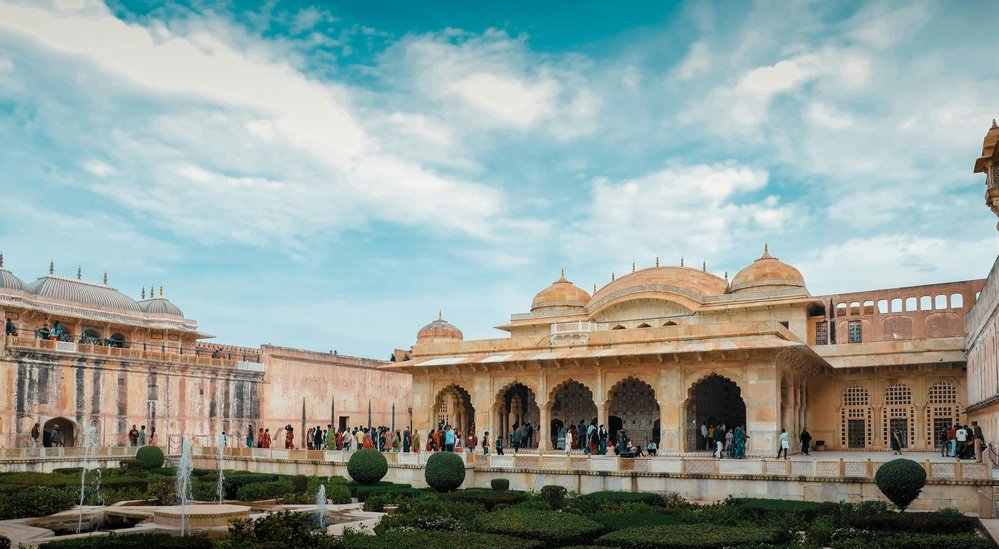Rajasthan, the land of kings, camels, and timeless grandeur, is a cultural treasure trove nestled in northwestern India. With its regal palaces, formidable forts, vibrant traditions, and artistic heritage, heritage tourism in Rajasthanc offers a rich, immersive experience for culture lovers. For those who seek to dive deep into India’s royal past, architectural marvels, and living traditions, Rajasthan is not just a destination—it’s a cultural revelation.
Let’s explore why this majestic state is a dream come true for every culture enthusiast.
1. A Living Legacy of Royalty
Rajasthan has been home to some of India’s most powerful Rajput dynasties, and their legacy still lives on through the state’s magnificent heritage sites. Cities like Jaipur, Udaipur, Jodhpur, and Bikaner are dotted with palaces and forts that whisper tales of valor, romance, and royal extravagance.
- City Palace in Jaipur, with its blend of Rajput and Mughal architecture, houses museums filled with royal costumes, weapons, and artifacts.
- Mehrangarh Fort in Jodhpur, one of the largest forts in India, offers panoramic views and a rich collection of historical memorabilia.
- Udaipur’s Lake Palace and City Palace are examples of architectural finesse and regal luxury.
These monuments are more than just tourist spots—they are gateways to the past, offering a visual and emotional journey into India’s royal heritage.
2. Cultural Festivals That Celebrate Tradition
Heritage tourism in Rajasthan is incomplete without experiencing its lively festivals. These festivals are not just colorful events—they are an authentic display of Rajasthan’s vibrant spirit and deep-rooted customs.
- Pushkar Camel Fair blends livestock trading with cultural performances, competitions, and local crafts.
- Desert Festival in Jaisalmer showcases traditional music, Kalbeliya dance, puppet shows, and even camel races.
- Teej and Gangaur Festivals in Jaipur celebrate feminine strength and marital bliss with processions, folk music, and intricate traditional attire.
These festivals create a spectacular atmosphere where tourists become a part of the local culture, making it a must-do for anyone interested in heritage tourism.
3. Traditional Arts, Crafts, and Cuisine
Rajasthan is a paradise for art lovers. The state’s artisans continue to practice crafts passed down through generations, creating everything from intricate jewelry to colorful textiles and pottery.
- Bandhani and block-printed fabrics are world-famous for their patterns and vibrant colors.
- Blue pottery of Jaipur, miniature paintings of Udaipur, and leather juttis from Jodhpur offer unique keepsakes that represent the region’s artistic diversity.
Rajasthani cuisine, too, is a reflection of its cultural richness—spicy, flavorful, and traditionally prepared. Dishes like dal baati churma, laal maas, and ker sangri are staples that showcase the ingenuity of desert cooking.
4. Stay in Heritage Hotels and Havelis
One of the most appealing aspects of heritage tourism in Rajasthan is the opportunity to live like royalty. Many former palaces and havelis (mansions) have been transformed into luxurious heritage hotels.
- Samode Palace, Neemrana Fort-Palace, and Taj Lake Palace offer exquisite stays with vintage décor, royal cuisine, and cultural performances.
- These properties allow guests to not just witness history, but live in it—surrounded by antique furniture, courtyards, and age-old murals.
For culture enthusiasts, staying in such places enhances the experience by providing a deep connection to the state’s royal traditions.
5. Heritage Walks and Guided Tours
Culture seekers thrive on understanding the stories behind the stones, and Rajasthan offers numerous heritage walks and guided tours that provide insightful context.
- In cities like Jaipur, Udaipur, and Jodhpur, local guides lead tours through old bazaars, hidden temples, historical alleys, and artisan workshops.
- Visitors gain in-depth knowledge about architectural styles, historical events, and cultural symbolism that might otherwise go unnoticed.
These walks are perfect for travelers who want to go beyond the surface and truly understand the essence of Rajasthan’s heritage.
6. Sustainable and Responsible Tourism
As the demand for heritage experiences grows, Rajasthan has also embraced sustainable tourism practices. Travelers are encouraged to support local artisans, opt for eco-conscious accommodations, and respect local traditions and communities.
By participating in heritage tourism in Rajasthan, culture enthusiasts contribute to the preservation of these historical sites and traditional practices, ensuring that they thrive for future generations.
Conclusion
For those passionate about history, architecture, traditions, and authentic cultural experiences, heritage tourism in Rajasthan is an absolute must. Whether you’re marveling at the intricate carvings of a centuries-old fort, dancing to the rhythm of folk music at a desert festival, or savoring traditional flavors in a palace dining hall, every moment in Rajasthan is steeped in culture.
In Rajasthan, heritage is not a relic of the past—it is a living, breathing part of everyday life. For culture enthusiasts, this royal land is nothing short of a timeless journey.
